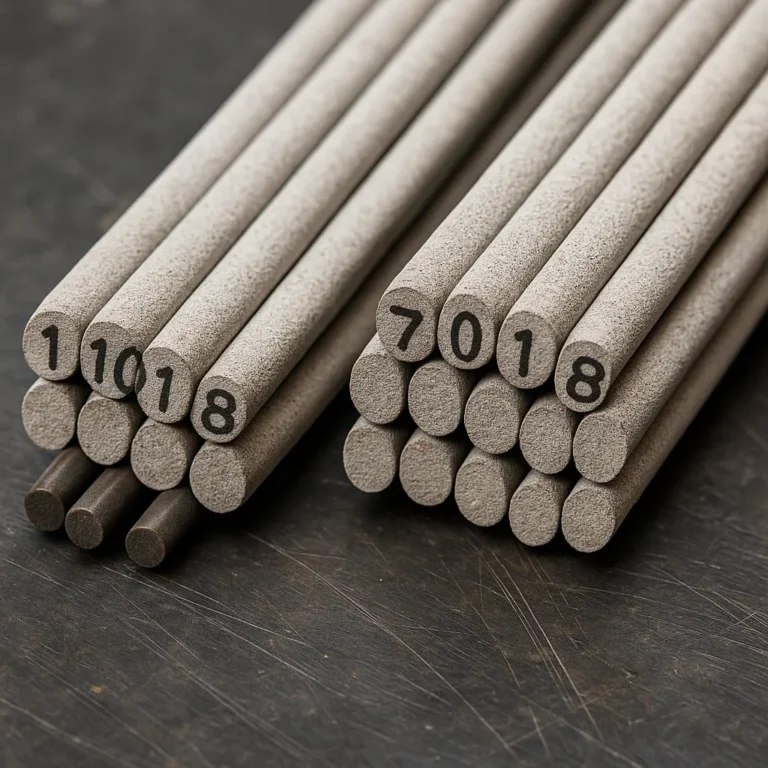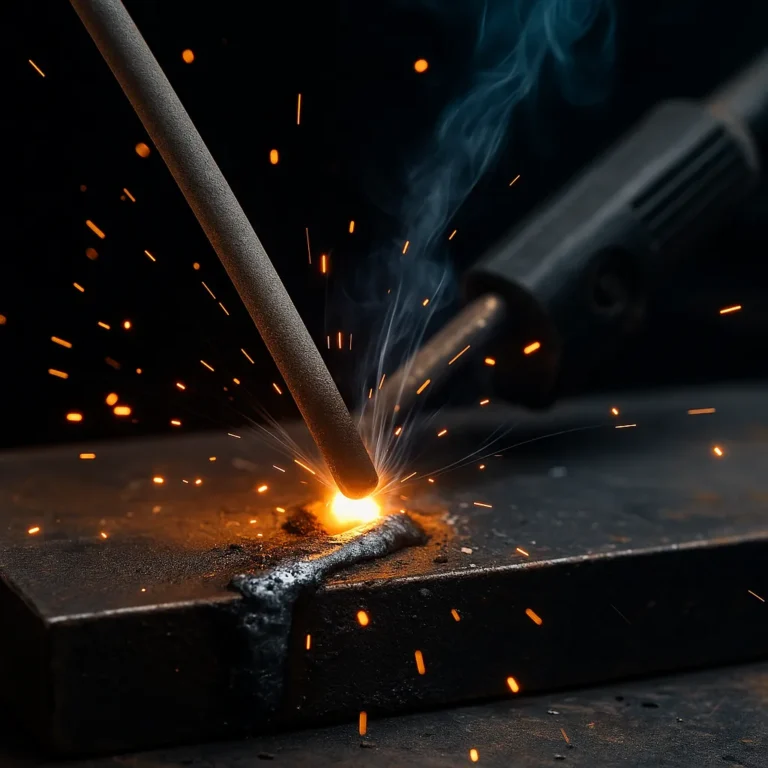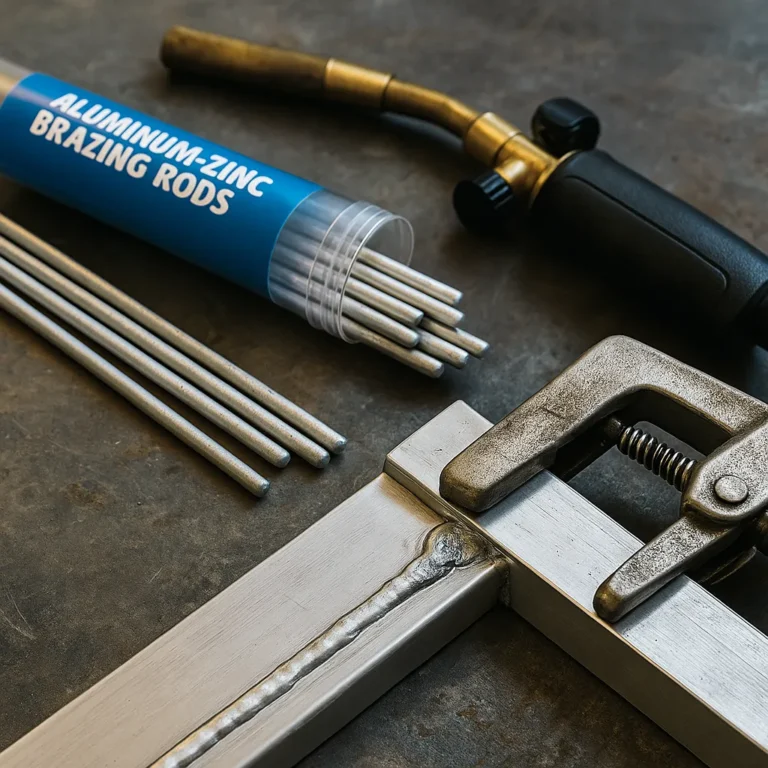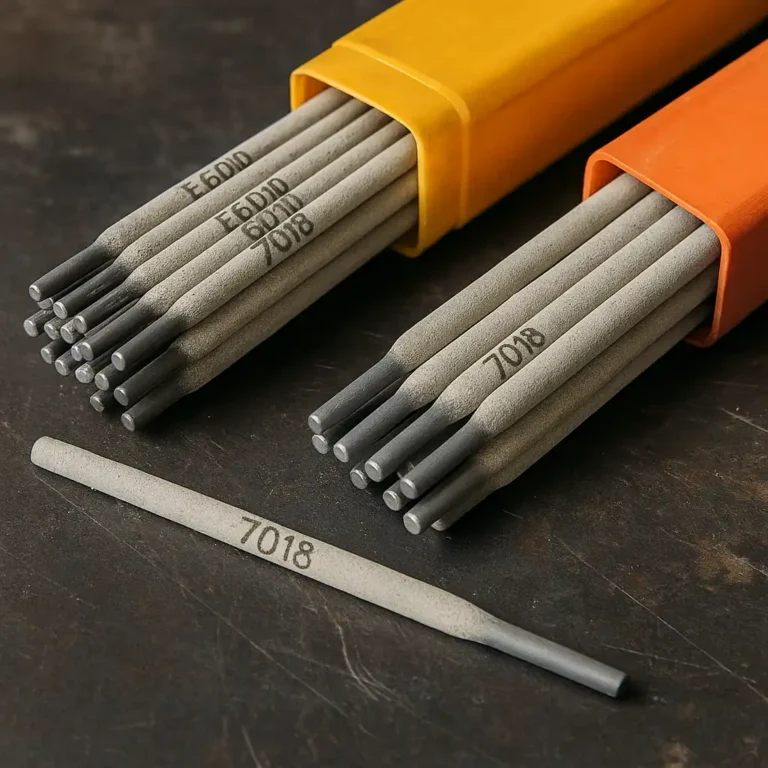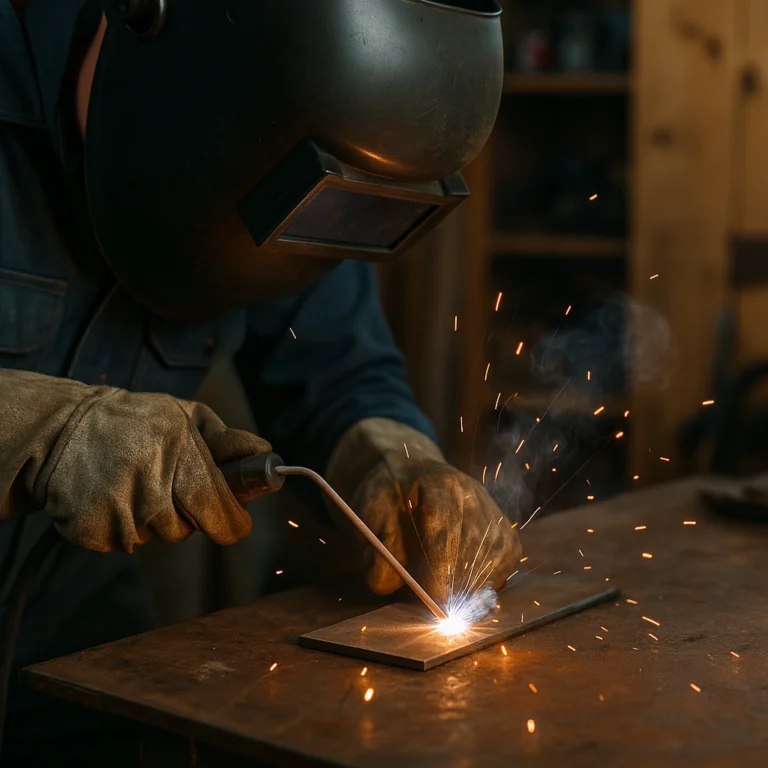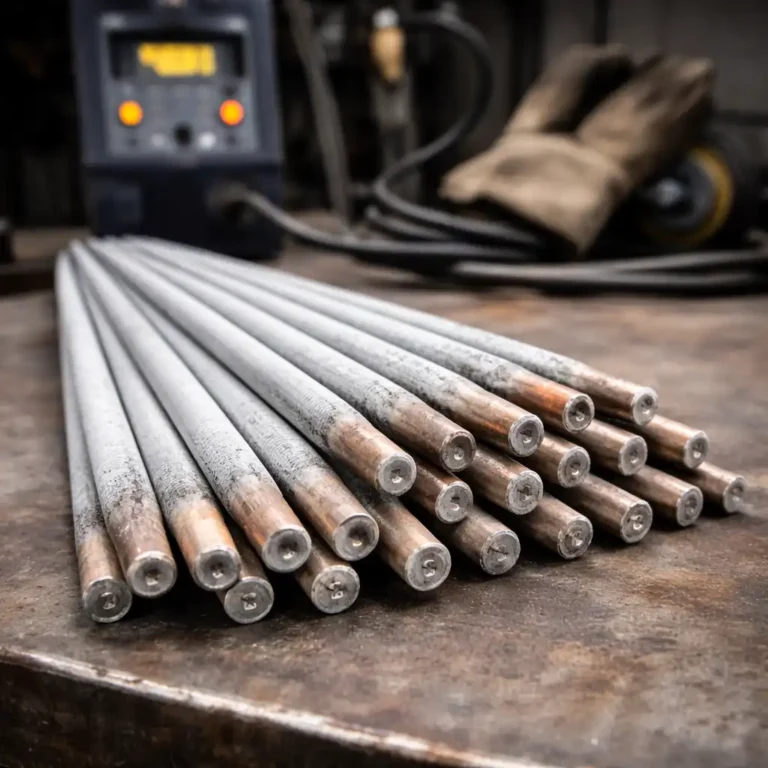Best Welding Rod for Cast Iron – Nickel Electrode Comparison Based on AWS Standards
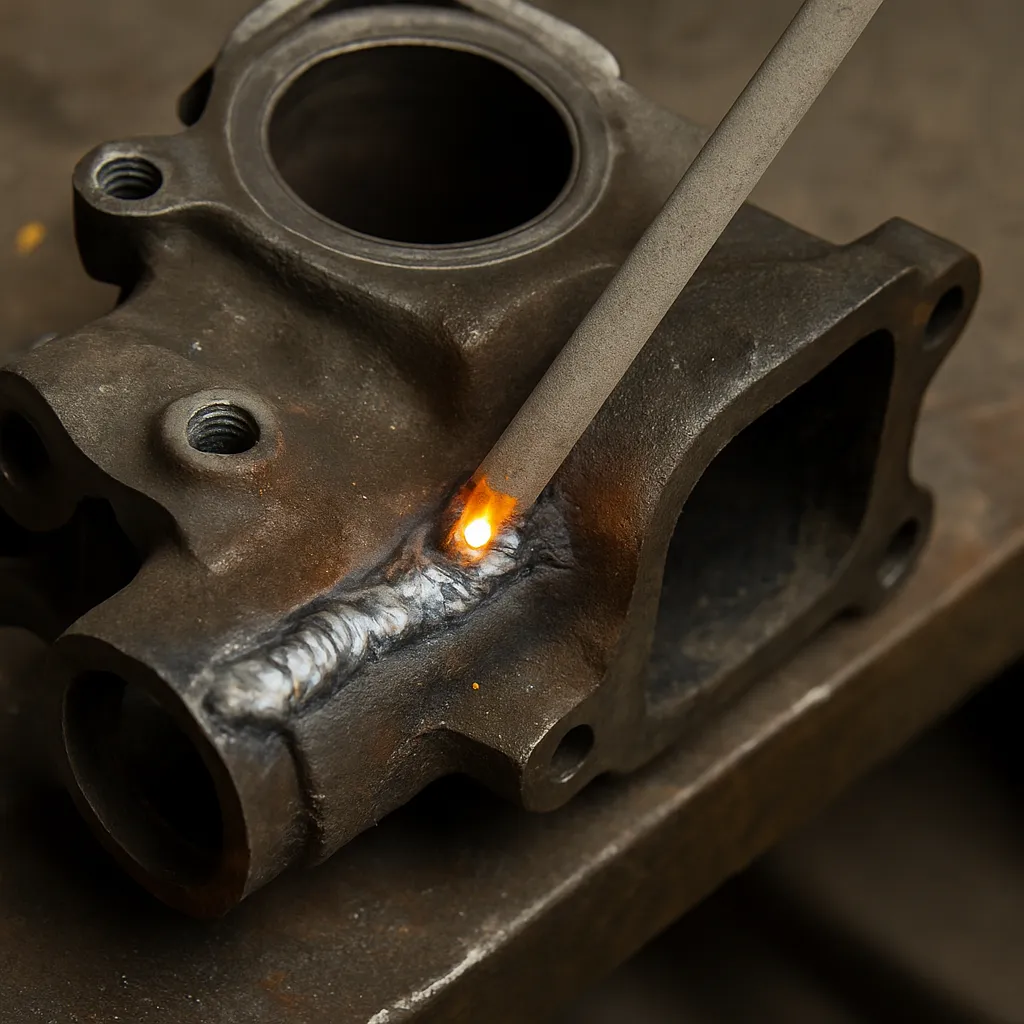
Disclosure: This post contains affiliate links. As an Amazon Associate, I earn from qualifying purchases—at no extra cost to you.
Last Updated: February 2026
Choosing the best welding rod for cast iron is less about convenience and more about managing cracking, dilution, and base metal brittleness. Based on manufacturer specifications and AWS guidance, cast iron requires nickel-based electrodes to accommodate high carbon content and reduce stress during cooling. Using the wrong rod often leads to immediate cracking or long-term failure.
This guide compares three widely used cast iron welding electrodes, explains how they differ, and highlights where each option is most appropriate.
👉 For material-specific filler guidance, see our detailed breakdown on best welding rods to understand how base metal chemistry affects filler selection.
💰 Check Price & Availability
View on Amazon – ENi-CI 99% Nickel Cast Iron Welding Electrode (3/32″)
View on Amazon – Weldcote Metals Nickel 99 Cast Iron Welding Electrode (1 lb)
View on Amazon – ENiFe-CI 55% Nickel Cast Iron Welding Electrode (3/32″)
📋 Quick-View Comparison List
ENi-CI 99% Nickel Cast Iron Welding Electrode (3/32″) – Highest nickel content for maximum crack resistance and machinability
Weldcote Metals Nickel 99 Cast Iron Welding Electrode (1 lb) – High-purity nickel rod for clean repairs and predictable results
ENiFe-CI 55% Nickel Cast Iron Welding Electrode (3/32″) – Lower nickel content for higher strength and better color match
📋 How We Evaluate Cast Iron Welding Rods
This research-based comparison evaluates cast iron welding rods using:
- Manufacturer technical specifications
- Aggregated user feedback from verified purchasers
- Industry standards and guidance from the American Welding Society (AWS)
- Application-specific requirements for cast iron repair
We do not personally test consumables. Product inclusion reflects documented performance characteristics, common industry usage, and alignment with accepted best practices. Always verify compatibility with your specific casting and service conditions.
📦 ENi-CI 99% Nickel Cast Iron Welding Electrode (3/32″)
Based on manufacturer specifications, ENi-CI 99% nickel electrodes are designed for maximum crack resistance when welding cast iron. The high nickel content minimizes dilution with carbon from the base metal, reducing hardness in the heat-affected zone.
These electrodes are commonly recommended for repairing gray cast iron, engine blocks, housings, and machine components where machinability after welding is required. Aggregated user feedback frequently notes smoother arc behavior and reduced post-weld cracking compared to lower-nickel alternatives.
📦 Weldcote Metals Nickel 99 Cast Iron Welding Electrode (1 lb)
The Weldcote Metals Nickel 99 electrode offers similar chemistry to ENi-CI classifications, focusing on high-purity nickel for cast iron repair. Manufacturer data emphasizes its suitability for general cast iron maintenance and repair work where minimizing cracking is the primary concern.
According to user feedback patterns, this rod is often selected for shop repairs and maintenance tasks due to consistent arc performance and predictable weld characteristics across a range of cast iron castings.
📦 ENiFe-CI 55% Nickel Cast Iron Welding Electrode (3/32″)
ENiFe-CI 55% nickel electrodes are formulated to balance crack resistance with increased strength. The iron content improves tensile strength and produces a weld deposit closer in color to cast iron, which may be desirable for visible repairs.
AWS guidance indicates that while ENiFe-CI electrodes are stronger than 99% nickel rods, they may be slightly more crack-sensitive, particularly on highly brittle or contaminated castings. They are commonly used on thicker sections and structural cast iron components.
🔍 Choosing Between 99% Nickel and 55% Nickel Rods
According to AWS recommendations, filler selection for cast iron depends on crack sensitivity, section thickness, and post-weld machining needs.
99% nickel electrodes are generally preferred for crack-prone castings and repairs requiring machinability.
55% nickel electrodes are chosen when higher strength and color match are prioritized over ease of machining.
Surface preparation, controlled heat input, and proper cooling remain critical regardless of rod selection.
📌 Key Takeaways
- Nickel-based electrodes are the standard choice for welding cast iron
- 99% nickel rods offer superior crack resistance and machinability
- 55% nickel rods provide higher strength and better color match
- Cast iron welding success depends heavily on filler selection and technique
- AWS guidance emphasizes crack control over tensile strength
⚠️ Safety & Training Requirements
Welding cast iron involves significant electrical, fire, burn, and eye injury hazards, as well as elevated cracking risk due to material brittleness. This guide provides general equipment information only and does not substitute for proper welding training, manufacturer safety instructions, electrical work performed by qualified electricians, or appropriate personal protective equipment (PPE).
Consult certified welding instructors and follow all OSHA and AWS safety standards.
🟢 FAQs
Q: Is nickel welding rod required for cast iron?
According to AWS guidance, nickel-based electrodes are strongly recommended for cast iron due to their crack resistance and compatibility with high-carbon materials. Consult qualified professionals for personalized advice.
Q: Can cast iron be welded with steel electrodes?
Manufacturer and AWS documentation indicate that steel electrodes significantly increase cracking risk when used on cast iron. Consult qualified professionals for personalized advice.
Q: Is preheating always required for cast iron welding?
AWS guidance indicates that preheating is often recommended to reduce thermal stress, though requirements vary by casting size and condition. Consult qualified professionals for personalized advice.
✅ Conclusion
Based on manufacturer specifications, aggregated user feedback, and AWS standards, the best welding rod for cast iron depends on managing crack sensitivity rather than maximizing strength. 99% nickel electrodes remain the most reliable choice for general repairs and machinability, while 55% nickel options are selected when higher strength or visual match is required. Selecting the correct electrode is critical to achieving durable, crack-resistant cast iron welds.

